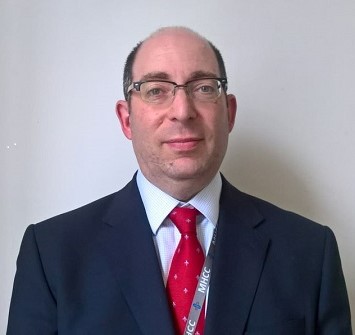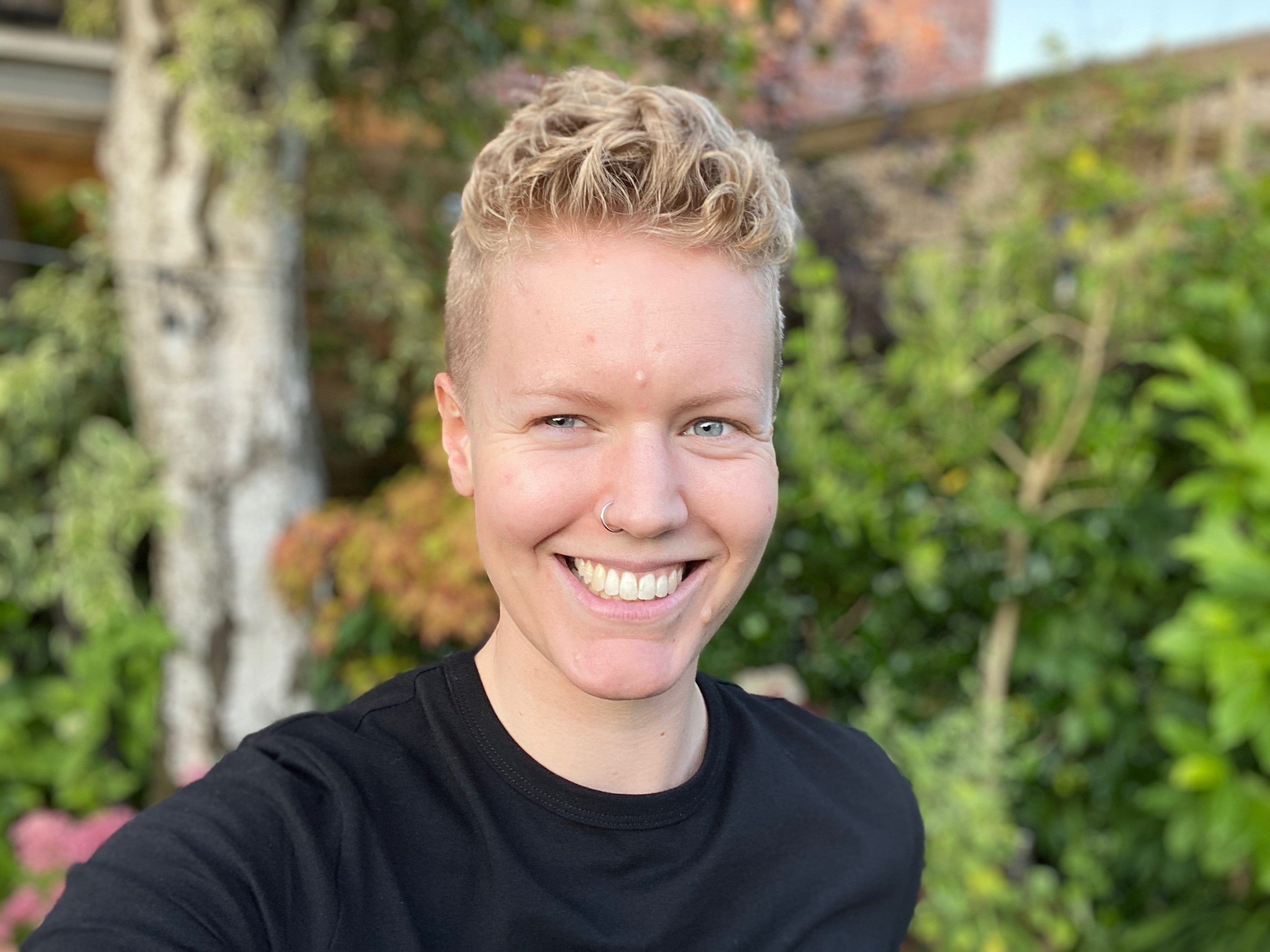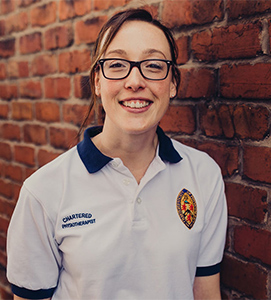Meet our 2024/25 Pre-doctoral Fellowship award holders
 Neil Bendel
Neil Bendel
UKPHR registered Public Health Specialist and the Knowledge and Intelligence Lead in the Department of Public Health.
Manchester City Council.
"How do improvements in research culture affect decision-making in local authorities? An examination of NIHR-funded Health Determinants Research Collaborations (HDRCs)."
- More info about Neil and his research interests
What is your current role?
I am a UKPHR registered Public Health Specialist and the Knowledge and Intelligence Lead in the Department of Public Health, Manchester City Council.
Who are your Pre-doc supervisors?
- Professor Roman Kislov
- Professor Arparna Verma
What is your field of research?
Knowledge mobilisation and evidence-informed decision making.
How are you currently involved in research in your job role?
My work has allowed me to contribute to a wide range of research activities over the course of my career, most recently a study of ‘excess mortality’ in three similar post-industrial cities (Glasgow, Liverpool and Manchester). I am also a co-applicant of the Manchester Health Determinants Research Collaboration (HDRC) programme.
Why are you interested in research and this ARC-GM Pre-doctoral fellowship?
The nature of my work has involved me in a variety of research projects which have given me practical experience in a range of methodologies and approaches to research. The Fellowship will provide me with the protected time and academic support to expand and consolidate this experience through a more thorough and in-depth exploration of the underlying scientific theory and practice in my field of research.
What research training courses/modules are you accessing as part of your Fellowship?
I plan to undertake several training courses run by the Social Research Association (SRA), including courses on qualitative data analysis and interpreting and writing findings from qualitative research.
Research question:
How do improvements in research culture affect decision-making in local authorities? An examination of NIHR-funded Health Determinants Research Collaborations (HDRCs)?
Research summary:
My research will start to explore how improvements in research culture in local authorities lead to an improvement in the nature and quality of decision making and, through that, improve health outcomes for local residents and communities. It will provide a better understanding of the factors that enhance or inhibit the extent to which improvements in research culture in local authorities lead to better decision-making.
C oral Leather
oral Leather
Social Worker in an Older People's Mental Health Team
Bury Council
"How can social workers provide gender affirming care to transgender and gender diverse adults while challenging cis/heteronormative practices within statutory social care services?"
- More info about Coral and their research interests
What is your current role?
I am a Social Worker in an Older People's Mental Health Team
Who are your Pre-doc supervisors?
- Dr Stephen Hicks
- Dr Dharman Jeyasingham
- Dr Penny Lewis
What is your field of research?
Social work intervention with transgender and gender diverse adults
How are you currently involved in research in your job role?
I am actively liaising with our Practice Learning and Development Team about my project and am hopeful that the work completed can be disseminated on a wider scale upon its completion. I will be inviting social work practitioners to be involved in the development of additional learning materials and a prospective PhD proposal as part of several "focus group" style workshops and presentations over the next year.
Why are you interested in research and this ARC-GM Pre-doctoral fellowship?
My project is based on some of the uncertainties, indecision, and lack of knowledge that have arisen in practice with transgender and gender diverse service users. There is a desire to improve the conditions for both professionals and service users, whose experiences of health and social care services can involve stigma, discrimination, and oppression.
Research has an important role in social work. I enjoy working in a hybrid way that informs both sides and provokes interesting questions and new and novel ideas. I will continue to pursue a practitioner-academic role and would like to apply for a doctoral fellowship going forward.What research training courses/modules are you accessing as part of your Fellowship?
Trans Theory and the Sexuality Summer School (TBC) at the University of Manchester. I am working towards presenting my scoping review at the Sexuality and Social Work and Joint Universities Social Work Association conferences in June/July 2025.
Research question:
How can social workers provide gender affirming care to transgender and gender diverse adults while challenging cis/heteronormative practices within statutory social care services?
Research summary:
I was enrolled on the Trans Theory module in semester one, and am currently working on a scoping review (which charts a history of social work intervention in transgender and gender diverse lives) that I am hoping to present at two conferences this summer. I am actively engaging with a range of community and professional stakeholders as part of a wider public involvement and engagement goal that will inform a doctoral application.

Nicola Hodgson
Highly Specialised Musculoskeletal Physiotherapist at Manchester Adult Cystic Fibrosis Unit.
Manchester University NHS Foundation Trust
"What methods of assessment of muscle strength are used within practice across various clinical settings that might be applicable with a cystic fibrosis population?"
- More info about Nicola and her research interests
What is your current role?
Highly Specialised Musculoskeletal Physiotherapist, working at the Manchester Adult Cystic Fibrosis Unit.
Who are your Pre-doc supervisors?
- Dr Nick Dobbin, Senior Lecturer in Exercise Physiology/Sports Medicine in the Department of Health Professions, Manchester Metropolitan University.
- Dr Jodi Ventre, Research Associate at the University of Manchester and ARC-GM
- Dr Amelia Parchment, Research Associate at the University of Manchester and ARC-GM
- Dr Peter Goodwin, Senior Lecturer in Physiotherapy, Manchester Metropolitan University.
What is your field of research?
My field of research focuses on muscle strength measurement in clinical practice, with a specific interest in developing reliable strength assessments for individuals with cystic fibrosis. Muscle weakness is a common yet under-recognized issue in this population, and I aim to create a strength measure that can be easily implemented in clinical settings to monitor and improve the management of muscle function in patients with cystic fibrosis. By enhancing the ability to assess muscle strength, my goal is to contribute to more effective treatment strategies that improve the quality of life and overall health outcomes for these patients.
How are you currently involved in research in your job role?
I am currently undertaking the Associate Principal Investigator scheme with the CF-yoga study, which focuses on exploring the benefits of yoga for patients with cystic fibrosis. This has allowed me to be involved in participant recruitment, consent, and data collection. In addition, I am a current principal investigator in a small-scale observational study investigating shoulder pain in people with cystic fibrosis (SPIN). Furthermore, I hold the position of Associate Research Champion within my hospital trust, where I work to promote and support research involvement.
Why are you interested in research and undertaking an ARC-GM pre-doctoral fellowship?
I am deeply passionate about improving patient outcomes and advancing clinical practice, and research is essential to achieving these goals. Research provides invaluable insights that address real-world challenges, contributing to the development of better treatments, improving patient safety, and enhancing overall patient satisfaction. I am motivated by the opportunity to make a tangible difference in healthcare and to contribute to this knowledge base.
The ARC-Gm pre-doctoral fellowship offers a unique opportunity for me to step beyond the day-to-day demands of clinical practice and engage in independent research. It provides a platform to develop my skills, design and implement my own research project, and prepare myself for a future doctoral fellowship.
What is/are your research questions?
What methods of assessment of muscle strength are used within practice across various clinical settings that might be applicable with a cystic fibrosis population?
Undertake patient and public involvement to establish patient opinion on the topic of muscle strength and measurement.
Research summary?
I am planning to undertake a scoping review of the literature to summarise the various muscle strength measures currently used in clinical practice. The goal of this review is to evaluate the applicability of these measures for a cystic fibrosis population. By reviewing existing measures, I aim to identify whether any current strength assessment measures can be adapted or transferred to the specific needs of individuals with cystic fibrosis, with the aim of improving clinical care and treatment outcomes for this patient group.
 Amy McCawley
Amy McCawley
Corporate Improvement Advisor and Coach
Manchester University NHS Foundation Trust
"What is the experience of psychological safety in the MFT admin and clerical workforce? Does this experience relate to their improvement capacity?"
- More info about Amy and her research interests
What is your current role?
I am a Corporate Improvement Advisor and Coach at Manchester University NHS Foundation Trust.
Who are your Pre-doc supervisors?
- Professor Sharon Clarke
- Dr Faye Bradley
- Dr Louise Laverty
What is your field of research?
Occupational psychology. I am especially interested in the psychological safety in the workforce as an enabler for improvement.
How are you currently involved in research in your job role?
I am currently collaborating on research into using predictive analytics tools in acute healthcare teams.
My fellowship focuses on understanding experiences of psychological safety in the workplace to support improvement, with a focus on the administrative and clerical workforce.
Why are you interested in research and this ARC-GM Pre-doctoral fellowship?
Research is essential to innovation and improvement. I recognise psychological safety and other psychological factors as essential foundational elements that impact an organisation's ability to engage the workforce with improvement potential. To enable improvement capability, I am interested in contributing to an understanding of the experience of these factors so that we can best support the workforce in building competence and capacity to deliver improvement in complex healthcare settings.
The ARC-GM pre-doctoral fellowship has allowed me to develop my research knowledge, skills, and network. I am keen to champion research generally, and I wanted to role-model research capability for professionals in non-clinical roles.
What research training courses/modules are you accessing as part of your Fellowship?
I am excited to have been accepted to access a Master’s in Public Health module on implementation science.
Research question:
What is the experience of psychological safety in the MFT admin and clerical workforce?
Does this experience relate to their improvement capacity?
Research summary:
My research explores the role of psychological safety in enabling a culture of improvement within Manchester University NHS Foundation Trust (MFT), particularly among Administrative and Clerical staff. This often-overlooked workforce is essential to patient access and experience. The study aims to address gaps in research on how psychological safety influences improvement efforts within this staff cohort and its impact on patient care and organisational effectiveness.
I aim to contribute to our understanding of the administrative and clerical staff’s psychological safety experiences and examine their perceptions of their improvement capability. I want to investigate whether these experiences and perceptions vary across Agenda for Change levels.
I hope my research will generate insights to inform strategies for embedding and sustaining improvement cultures, strengthen patient access, experience, and safety by acknowledging the crucial role of administrative and clerical staff and provide evidence-based recommendations for improving staff engagement, training, and leadership in quality improvement efforts.
This study aims to be the first large-scale investigation into the psychological safety of NHS Administrative and Clerical staff, potentially influencing policy and practice across the broader NHS.